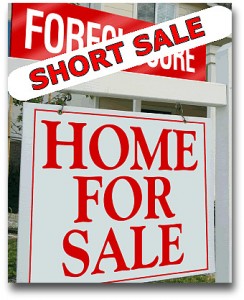A recent surge in short sales, caused by more agreeable selling terms by banks, has increased short sales above foreclosure sales for the first time.
According to research by Lending Processing Services (LPS), short sales accounted for 23.9 percent of home purchases in January, compared with a 19.7 percent market share for foreclosure sales. In January 2011, the data was a near-inverse, with foreclosures at 24.9 percent and short sales 16.3 percent.
In a Bloomberg article on the data, Jonathon Weiner, a vice president in the applied analytics division of Lender Processing Services, said the increase in short sales has occurred fairly recently.
“It’s a fairly recent phenomenon that short sales have been increasing,” Weiner said. “Short sales should be the dominant way of disposing of assets.”
Weiner said that the increase in short sales is due to increased attention from banks. Previously, lenders had not adequately incorporated the sale strategy in their approach to the distressed home market, but considering its benefits – it’s both less costly and faster than an REO transaction – banks have been utilizing the short sale more and more, and the market has recovered as a result.
“Our baseline scenario is that home prices will hit a bottom at the end of this year,” Weiner said.
As Bloomberg noted, new incentives from banks has been a big cause for the recent interest in short sales. For instance, last year, Wells Fargo and JPMorgan Chase began offering cash incentives as high as $35,000 for delinquent homeowners to agree to short sales. Bank of America went even further, paying out $19.9 million in January and February of this year for the relocation of 22,534 homeowners who agreed to return their property deeds in exchange for debt forgiveness; as a result of that plan, the bank’s short sale transactions increased 31 percent year-over-year for the two months.
Here in Florida, short sale activity has outpaced national activity by several months. Since July, short sales have exceeded foreclosures in the Sunshine State, according to LPS, after the banks agreed to a moratorium on home seizures following the robo signing controversies of 2010.

